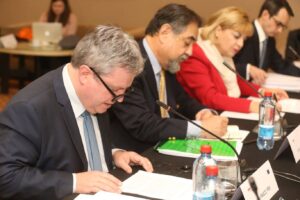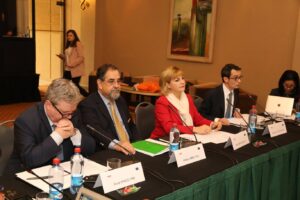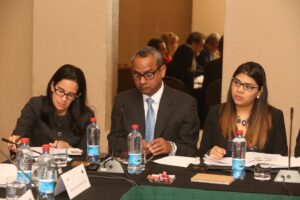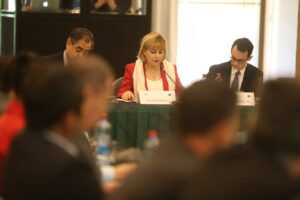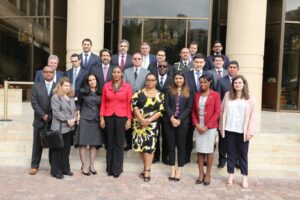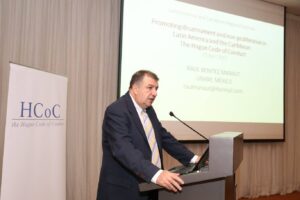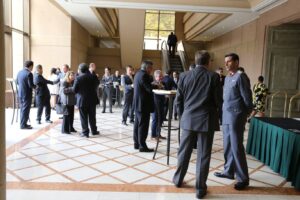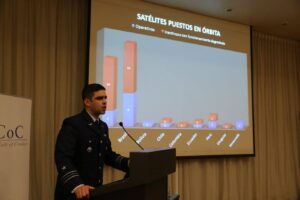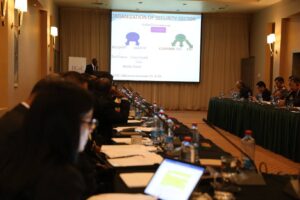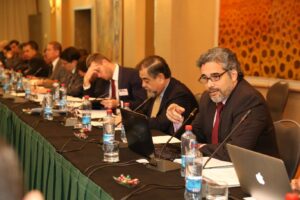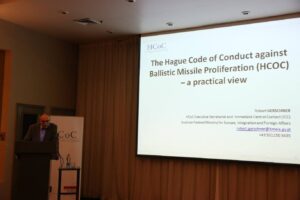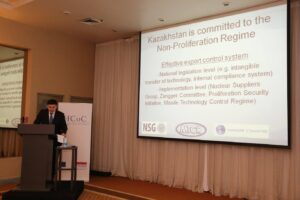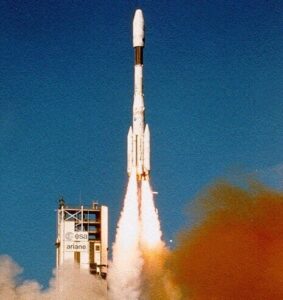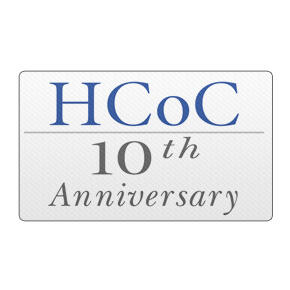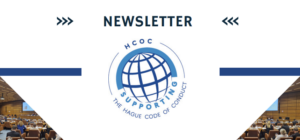Latin America and Caribbean regional seminar on HCoC
25 April 2017
On 25 April 2017, the FRS organised, on behalf of the European Union, a regional outreach seminar in Santiago (Chile) to raise awareness of ballistic missile proliferation and encourage discussions on perspectives to better address the ballistic missile proliferation threat at a regional level.
AGENDA
WELCOMING REMARKS
- Alexandre HOUDAYER, Secretary General, Foundation for Strategic Research
- Dr. Xavier PASCO, Director, Foundation for Strategic Research
- H.E. Ambassador Stella ZERVOUDAKI, Head of the European Union Delegation in Chile
- H.E. Ambassador Alfredo LABBÉ, Especial Envoy for Nuclear and International Security, Ministry of Foreign Affairs, Chile
I/ THE HCoC AGAINST THE PROLIFERATION OF BALLISTIC MISSILES: CONFIDENCE BUILDING MEASURE & PART OF THE NON-PROLIFERATION REGIME
PRESENTERS:
- Zhangeldy SYRYMBET, First Secretary, Permanent Mission of the Republic of Kazakhstan in Vienna (Chair of the HCoC)
- H.E. Ambassador Joachim ÖPPINGER, Austrian Ambassador to Chile
- Michael PENNY, Senior Foreign Service Officer, Ministry of Foreign Affairs of Saint Kitts and Nevis
- Alexandre HOUNDAYER, Secretary General, Foundation for Strategic Research
KEY ISSUES:
- Presentation of the Code: its main provisions
- The concrete meaning of implementing the HCoC
- The HCoC in the region: positions and evolution
- Relevance of joining the HCoC in relation to regional non-proliferation policies
- Successes and challenges of the HCoC in today’s environment
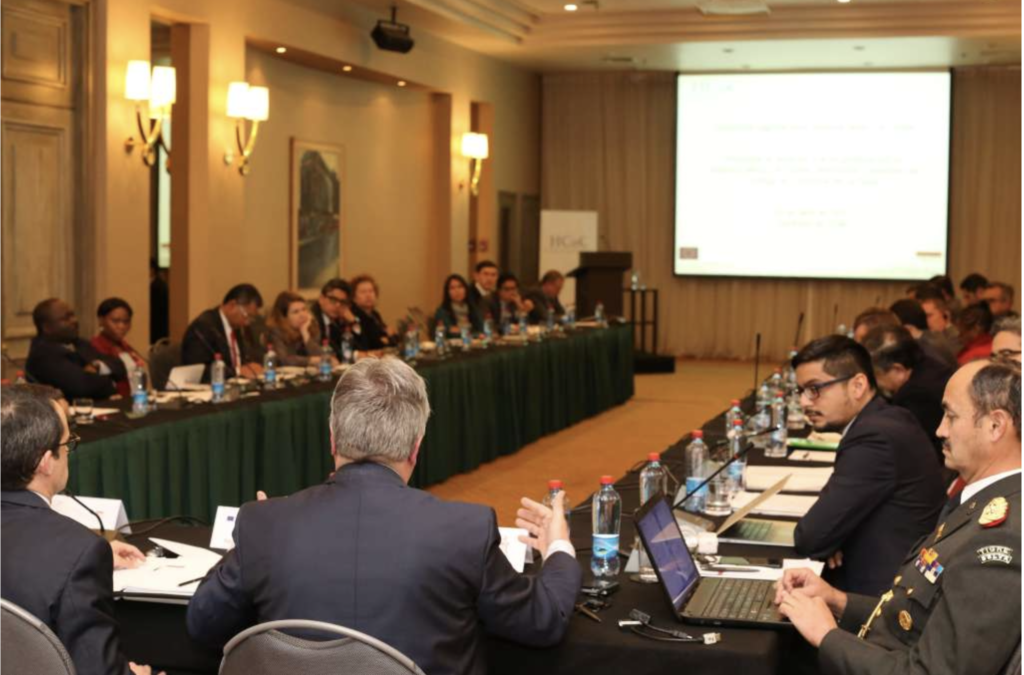
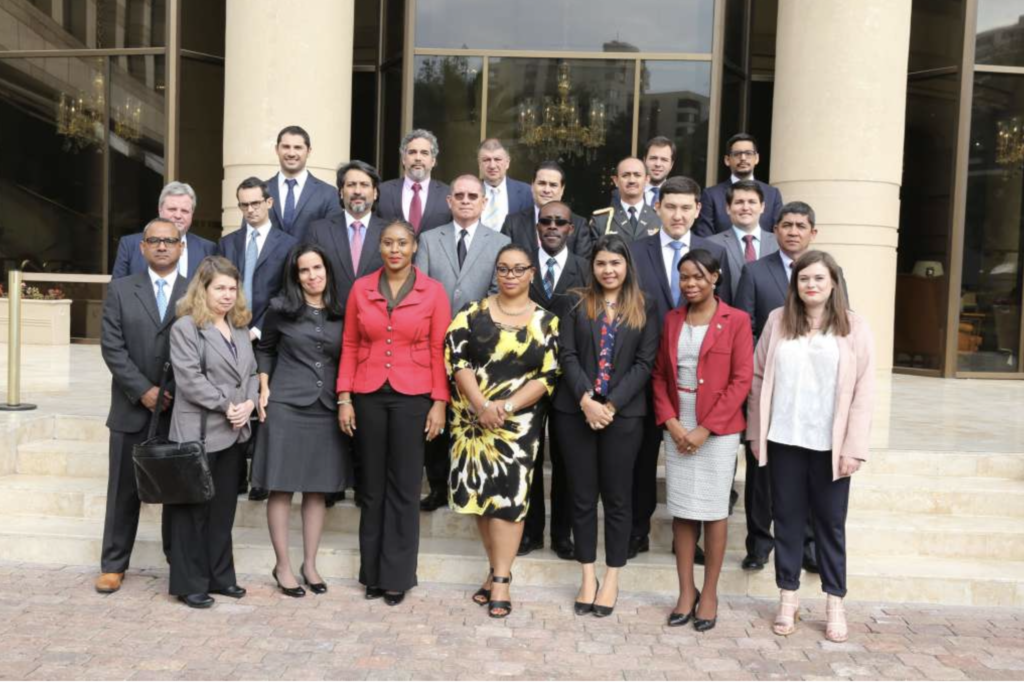
II/ PROMOTING DISARMAMENT & NON-PROLIFERATION IN LATIN AMERICA AND THE CARIBBEAN: TRENDS, EVOLUTIONS & THE SPECIFIC ISSUE OF BALLISTIC PROLIFERATION
PRENSENTERS:
- Mônica HERZ, Associate Professor, Catholic University of Rio de Janeiro Institute of International Relations
- Dr. Rodrigo ÁLVAREZ VALDÉS, Research Fellow, Universidad de Santiago de Chile
- Fernando GARCIA ROBLES, Expert, Mexico (in his own personal capacity)
- Raúl BENÍTEZ MANAUT, Universidad Nacional Autónoma de México
KEY ISSUES:
- The steps taken in the region to fight the proliferation of WMDs and their means of delivery
- Confidence-building measures as a way to improve international security, non-proliferation and disarmament
- Issues arising from dual-use technologies and related strategies: the specific case of ballistic missiles
III/ CURRENT TRENDS CONCERNING SPACE LAUNCH TECHNOLOGIES & CAPABILITIES: DYNAMICS OF SPACE LAUNCH & FUTURE USES OF SPACE APPLICATIONS
- Dr. Xavier PASCO, Director, Foundation for Strategic Research
- Dr. Luis ZEA, Universidad del Valle de Guatemala
- Major Daniel MORAGA, Ministry of Defence of Chile
KEY ISSUES:
- Space development in the region
- The characteristics of the development of space launch technologies
- The evolution of the satellite industry and its impact upon the space launch sector
CONCLUDING REMARKS
- Dr. Xavier PASCO, Director, Foundation for Strategic Research
- H.E. Ambassador Alfredo LABBÉ, Especial Envoy for Nuclear and International Security, Ministry of Foreign Affairs, Chile
